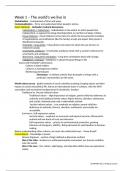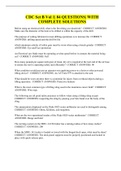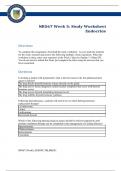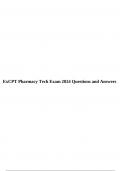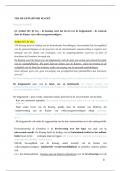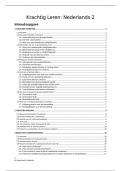Summary
Samenvatting - International and Global Communication (CM2001)
- Course
- Institution
Summary of the coure International and Global Communication (IGC) from the year 23/24 by lectures Etienne Augé. Including all the weeks: The world's we live in, Storytelling, An initiation to strategic mass communication, Hollywood, Public Realtion, Middel East, Terrorists and Freedom Fighters and...
[Show more]
